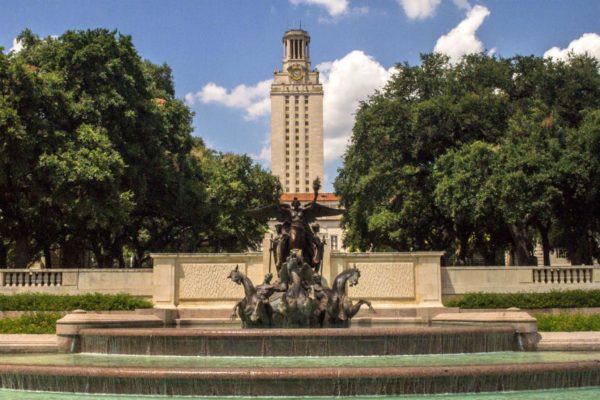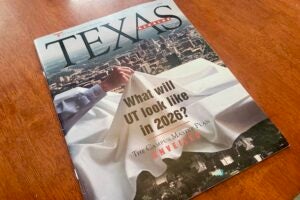One hundred forty years ago, the people of Texas laid out their will in the state Constitution that The University of Texas at Austin be a university of “the first class.”
We embody that every day, with our university and our people serving as the intellectual center of Texas.
We receive the most federal research funds of any Texas university. We will graduate more than 10,000 students this year with bachelor’s degrees, the largest number in university history. We welcomed more than 8,700 freshmen last month, another record. Even on a new state law allowing concealed handguns on campus — an issue where many passionately disagree — we have had an open and constructive debate where all voices were heard
But even the best can do better. As Gov. Greg Abbott, a tremendous supporter of higher education who will be recognized next month as a Distinguished Alumnus, said about our university, “Great is not good enough.”
To realize our potential, UT must do even more to prepare students to be successful leaders, conduct research with unprecedented global impact and influence, transform the health care system, and nurture a campus culture in which every voice is heard and valued.
For students to obtain such an outstanding education, it must be accessible and affordable, no matter their personal and family circumstances. That’s why I recently announced an additional commitment of $15 million in financial aid over the next two years for students from middle-income families. For families with annual incomes starting at $60,000, their students will be eligible for these new grants beginning in the fall of 2017.
Once they are on campus, students must have the opportunity to enroll in degree programs that incorporate the most effective approaches to classroom teaching, and focus more time and resources on the unique learning experiences that distinguish undergraduate education at a leading research university. Our newly launched “Project 2021” will allow a majority of our students to enroll in such innovative programs within five years.
As just one example, our Government department and LBJ School of Public Affairs have developed a course where students have their credits broken into an hour each for classroom learning, research and internships. Students in this course have won prestigious research awards, presented at international conferences, conducted fieldwork in Africa and Asia, and taken internships or started careers in the White House Council of Economic Advisers and the Federal Reserve Bank.
As we have seen in many areas of research, breakthroughs happen when we break down silos of knowledge. And we are doing that now.
We are creating a new initiative that we are calling Bridging Barriers. This interdisciplinary program across the campus will tackle some of the hardest questions in the natural and human-made worlds. We will make a substantial investment and enhance our research mission by adding 50 new faculty positions during the next several years.
Excellence also depends on fostering a culture on campus that includes all students — and that has diversity and inclusion as top priorities.
We have been recognized as a national leader in this area, just one of 10 American universities honored as a Diversity Champion by Insight into Diversity magazine. But again, great isn’t good enough.
This summer we began developing a campus-wide Diversity Action Plan that will clearly define the needs for improving diversity and inclusion, identify shortcomings and chart a course for advancing our values. From recruiting diverse students more effectively, to responding to hate incidents more quickly, to ensuring that underserved students have access to appropriate counseling, transportation and other services, we must, and will, take action.
For students to excel, they must also feel safe. That’s why we are actively taking steps both to improve security and to address the grave national problem of sexual assault. We must make this a university where we do everything we can to prevent sexual misconduct, where everyone is empowered to report it, and where survivors are confident the university takes them seriously, investigates expeditiously and has due process.
Yes, we have ambitious goals. And achieving these goals will require support from policymakers, benefactors, industry partners and alumni.
On campus, we must be willing to make hard choices, spend resources wisely and be accountable to the taxpayers of Texas and to the parents and students who pay tuition.
We are the flagship university for the world’s 12th largest economy. We are uniquely positioned by the blessings of our scale, resources and pioneering spirit to drive change and accelerate the pace of progress.
Gregory L. Fenves is the president of The University of Texas at Austin.
This op-ed was adapted from the annual State of the University address.
A version of this op-ed appeared in the San Antonio Express News, Austin American Statesman, Rio Grande Guardian and the McAllen Monitor.
To view more op-eds from Texas Perspectives, click here.
Like us on Facebook.




